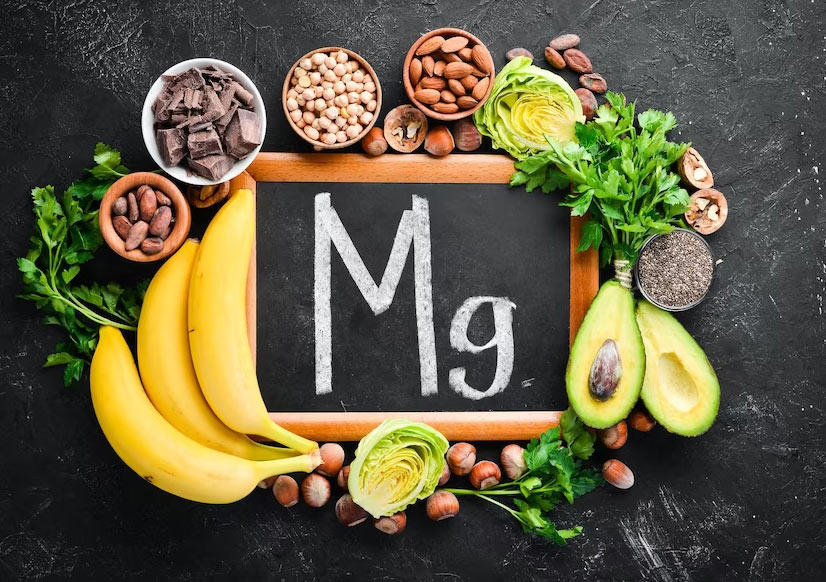
Frequently overshadowed by other better-known vitamins and minerals, magnesium is a quiet giant that has a vital role in more than 300 biochemical reactions in the human body. For men specifically, proper magnesium intake has been associated with a myriad of functions that are essential to health, from strong cardiovascular health to proper testosterone levels and overall wellness. So what exactly does this powerful mineral do for men's health, and are you consuming enough?
Table of Content:-
In an exclusive interaction with the editorial team of Onlymyhealth, our expert, Dr Shrey Kumar Srivastav, General Physician and Senior Consultant, Sharda Hospital - Noida, explained everything we need to know about the role of magnesium in men. Here is what he shared with us but let’s first understand the critical functions of it.
Critical Functions of Magnesium in Men
Magnesium plays a role in everything from energy and nerve function to muscle contraction and relaxation. In men, its influence reaches out into several critical areas:
1. Heart Health Hero
Cardiovascular illness is a major risk for men, and magnesium plays a crucial role in keeping the heart in top condition. Magnesium assists in blood pressure regulation, healthy heart rhythms, and can play a part in general cardiovascular health. Research has indicated that sufficient magnesium has been linked to a lower risk of high blood pressure and other cardiovascular conditions.
Also Read: Tech Neck To Texting Thumb: Expert Answers If Your Gadgets Are Harming Your Bones

2. Testosterone Support
When men get older, testosterone levels in their bodies start to decrease naturally. Magnesium is a key element that supports healthy testosterone production. Magnesium has been seen to be able to raise testosterone levels, especially in men whose levels are suboptimal, and even improve the bioavailability of available testosterone by lowering concentrations of sex hormone-binding globulin (SHBG). This can result in various benefits like enhanced energy, muscle mass, and libido.
3. Muscle Function and Exercise Performance
Regardless of whether you're working out at the gym or just making it through your regular day, your muscles depend on magnesium. The mineral is vital for both the contraction and relaxation of the muscles. Proper magnesium can enhance exercise performance, prevent muscle cramping, and maintain healthy muscles in general. For individuals who are physically active regularly, magnesium will be lost through perspiration, so adequate consumption becomes even more important.
4. Bone Health Guardian
Though commonly linked to calcium, magnesium is just as important for healthy bones. Much of the body's magnesium is found in the bones, where it works in partnership with bone-building cells and hormones that regulate calcium to ensure bone density and defend against bone loss, such as osteoporosis.
5. Sleep Quality and Stress Management
Stress is a ubiquitous companion in today's world, which is full of activity. Magnesium is involved in the regulation of the nervous system and in reducing cortisol levels, which is the stress hormone. Magnesium also helps in maintaining normal psychological functions, such as stress management. Magnesium is also believed to help relax muscles, which can help in enhancing sleep quality and in the fight against insomnia.

6. Metabolism and Blood Sugar Control
Magnesium is a part of the body's metabolism, such as the process of converting food to energy. It is also responsible for controlling blood sugar, assisting in maximising insulin sensitivity, which is especially useful in lessening the threat of type 2 diabetes.
7. Male Fertility
Less widely talked about, magnesium also plays a role in male fertility. It is crucial for many aspects of sperm health, such as the motility (ability of sperm to swim) of sperm, integrity of DNA, and energy production in sperm cells. Some research indicates that lower levels of magnesium are associated with male factor infertility.
Are You Getting Enough? Symptoms of Magnesium Deficiency
Although it is essential, magnesium deficiency is unexpectedly prevalent. Magnesium levels can be depleted by a diet rich in processed foods, some medications, and repeated stress. Symptoms of magnesium deficiency may be mild in the beginning,g but can include:
- Weakness and fatigue
- Muscle spasms or cramps
- Numbness or tingling sensations
- Abnormal heart rhythms (arrhythmias)
- Nausea, loss of appetite, or vomiting
- Headaches and migraines
- Insomnia or sleeping difficulty
If you notice any of these symptoms, it's recommended to speak with a healthcare provider to check your magnesium level.
How to Make Sure You Get Enough Magnesium
For adult men, the daily intake of magnesium is usually 400-420 milligrams per day. Additionally, according to Dr Srivastav, magnesium can easily be found in a wide array of natural, whole foods:
- Green Leafy Vegetables
- Nuts and Seeds
- Whole Grains
- Legumes
- Dark Chocolate
- Avocados
- Oily Fish
Conclusively, magnesium is much more than a mere mineral; it's an essential nutrient for men's health. By placing a high emphasis on magnesium-dense foods and supplementing when necessary, men can take a proactive approach to maintaining their heart, hormones, muscles, bones, and overall health.
Also watch this video
How we keep this article up to date:
We work with experts and keep a close eye on the latest in health and wellness. Whenever there is a new research or helpful information, we update our articles with accurate and useful advice.
Current Version